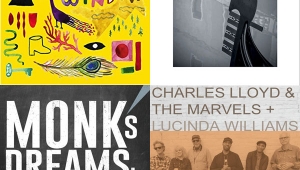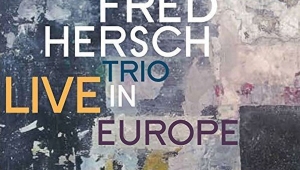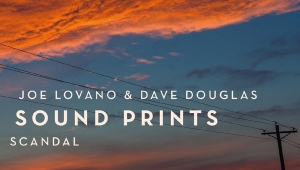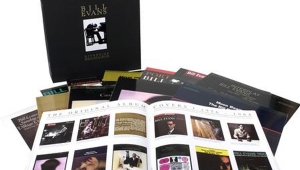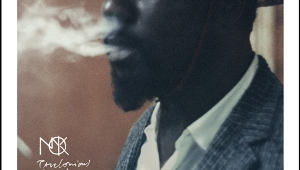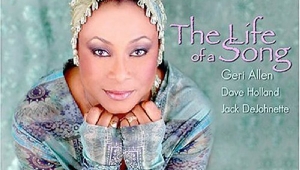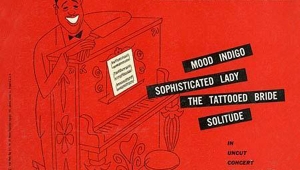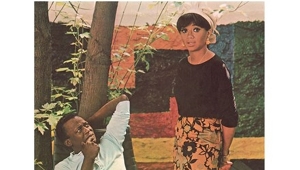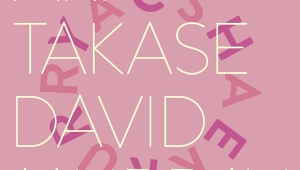| Columns Retired Columns & Blogs |
Miles Davis at Newport, 1955–1975
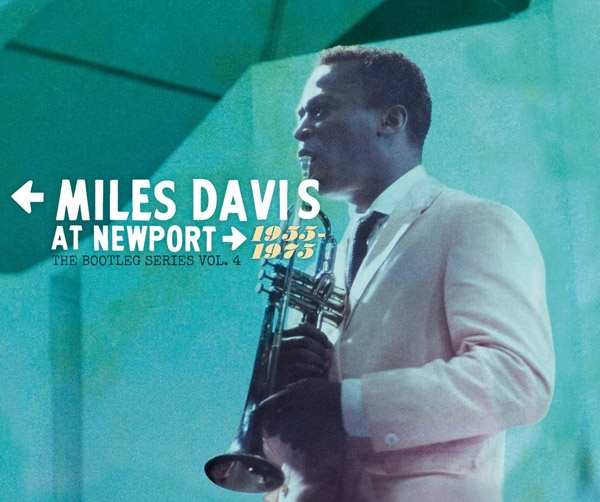
Miles Davis has been dead for nearly a quarter century, but, as he predicted in his rowdy memoir, the record companies keep rolling out product in his name. Not that there's anything wrong with that. We're talking, after all, about the great protean figure in jazz, a man who changed the music four times in as many decades and played at the top of his game at some point in each phase, often for years at a time.
News of yet another boxed-set of previously unissued Miles recordings never fails to zap the juices of anticipatory pleasure—and Sony's vaults, in particular, hold a lot of them. The latest, The Bootleg Series, Vol. 4: Miles Davis at Newport, 1955–1975 (Columbia Legacy), contains four CDs chronicling eight sessions from his appearances at the Newport Jazz Festival.
There are many delights here, but first some words of caution.
Previous volumes of the Miles "Bootleg Series" were just that: live sessions, some of which had been out in the marketplace, usually in degraded form (copies of copies of copies of tapes), but never officially so—that is, ever mastered from the original tapes, then released by their proper guardians . . . until now.
Volume 1, the best of the lot, featured live performances in Europe, circa 1966–67, by "the second great quintet" (Wayne Shorter, Herbie Hancock, Ron Carter, Tony Williams). Volume 2, a lesser gem (but still a gem), from 1968-70, uncovered the "lost band" (Miles and Wayne with the new rhythm section of Chick Corea, Dave Holland, and Jack DeJohnette), which Columbia never recorded in a studio. Volume 3, not so much to my taste but volcanic, caught the Bitches Brew-era fusion band in 1970, playing five sets at the Fillmore.
Volume 4 is a departure, and not in a good way. Nearly one-third of its musical tracks—11 of 36—have been released before, not just as bootlegs but on Columbia LPs or CDs. Disc 1 begins with Miles' famous comeback appearance at Newport in 1955, including his rendition of "Round Midnight," accompanied by Monk, which compelled George Wein—director of the festival and of Columbia Records' jazz and popular music division—to sign him up. Two of those three tracks have been on several Columbia issues of the past decade (including "Round Midnight," though the liner notes are mismarked to suggest otherwise—a mistake, not a deception, but still).
The rest of Disc 1, from the '58 festival, including his Milestones and Kind of Blue sextet (Coltrane, Cannonball Adderley, Bill Evans, Paul Chambers, and Jimmy Cobb), was released long ago in its entirety.
Finally, the first half of Disc 3, from 1969, was put out a few years ago as part of the Bitches Brew Live collection.
Much of the music is worth having. I'm just saying you could have had it already. Someone seems to have lost sight of what "bootleg sessions" means.
But for those who don't own these sessions, Volume 4 offers a short anthology of Miles Davis' transitions—from the lyrical standards of '55 to the hard-edged modalism of '58 to the borderline free jazz of '66 and '67, to the steadily electronic jazz-rock fusion of the '70s. It's amazing to hear, especially in this chronological package, how much Miles' trumpet-playing changed while still sounding distinctively Milesian.
The two sessions with the second great quintet, both on Disc 2, both previously unissued, are, to me, the set's highlights. The first took place in July '66, before they recorded Miles Smiles, the second in July '67, after they laid down Sorcerer and Nefertiti, and, while the former is propulsive, the latter is hair-raising, a fist-tight whirlwind of energy.
Did Newport at its peak bring out the Wildman in jazz drummers? Tony Williams morphs into Elvin Jones during these sets. And I've never heard Jimmy Cobb play with such ferocity as he did on the '58 tracks. All the musicians egg each other to new heights of risk-taking.
The '69 session, though already available, is a tingly earthquake: Miles heading into rock and roll, but with a small, cohesive band. The '71 and '73 sets fling out of orbit: the band got too big, the musicians (some of them) too undisciplined. The single track from the '75 festival, which took place at Avery Fisher Hall in New York, is a mess, though part of this may stem from the fact that it's mastered from a second- or third-generation cassette—and it sounds like that.
The sound? Overall, the cassette track aside, the boxed set is quite good for spontaneous live recordings—and, on the tracks that were previously issued, better-sounding than earlier incarnations, for the most part. Miles, who always put his trumpet right up against the mike, is particularly clear. On the first two discs, the bass and piano are quite much more audible than they have been. Not ear candy but not distractingly deficient either. Except (again) for that cassette track, they're all mastered by Mark Wilder from analog tapes—Discs 1 and 2 from the vaults of Columbia Records or Voice of America (stored in the Library of Congress), Discs 3 and 4 from radio stations or private collectors.
Given the relative paucity of brand new material here, could it be that we're nearing the end of the Miles Davis archive, that there just aren't that many unfound, unheard tape fragments left? Nah, someone will forever be unearthing homemade acetates of some radio broadcast or Midwestern concert that somehow eluded a generation of discographers. In the meantime, there is so much Miles Davis. In 2009, Sony put out a 70-CD box of all the Miles albums on the Columbia label. And that leaves aside the recordings with Charlie Parker in the '40s, his sessions as a leader on Blue Note and Prestige in the early-to-mid '50s, the Warner Bros. dates in his last few years, to say nothing of novelties like the 20-CD boxed set, The Complete Miles Davis at Montreux, 1973–1991 (of which my favorite is Disc 13).
It's no accident that there's so much music and an unflagging demand for more. The discography of Miles Davis spells out—in more comprehensive ways than that of any other one musician—the history of modern jazz.
- Log in or register to post comments
